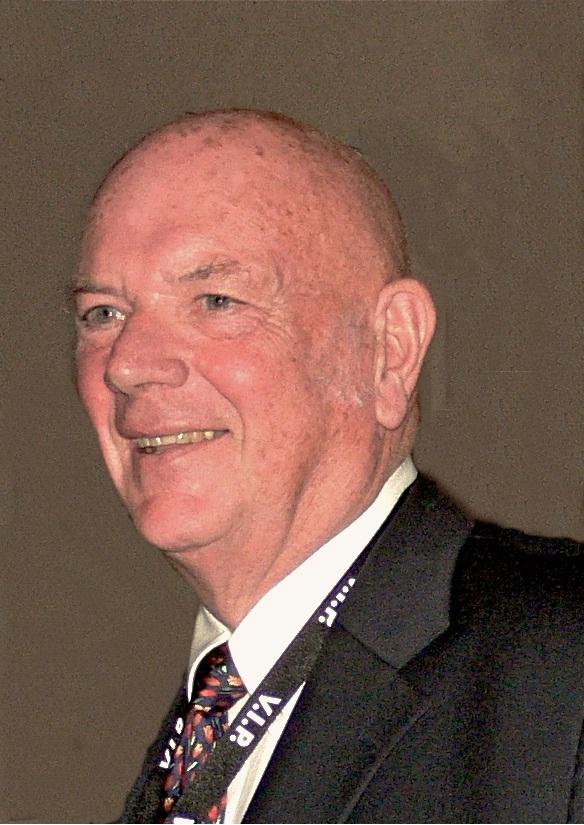Always Begin with the End in Mind: Hydricity
David Sanborn Scott, Ph.D., D.Sc. (hon.), FCAE
International Association of Hydrogen Energy
Alberta Innovates Energy and Environment Solutions
3:30pm - December 8, 2011
ETLC 1-001
Abstract:
I'll begin with the rationale that, for me, demonstrates why "hydricity" is the "end we must keep in mind"-at least if civilization is to have a chance of escaping the unpredictable-in-detail yet catastrophic climate volatility over the next century. By "hydricity" I mean the twin energy currencies, hydrogen and electricity, ultimately manufactured from sustainable, non-carbon energy sources. I will leave the audience with this challenge: To try to conceive any other energy system that could provide all the energy services civilization will demand, now or in the future, without emitting a drop of CO2. Absent a plausible alternative, the question becomes not is hydricity is the "end" we must keep in mind, but which of the many pathways are best to get there. The answer will differ among nations and regions-and depend upon the capital, intellectual, cultural and material resources available in each constituency. Today no jurisdiction has hydricity as the "end in mind." A consequence of that missing conceptual link is that, so far, the techno-economic policies of developed nations are a mixture of band-aid solutions, populist yet expensive initiatives riven by innumeracy and frequently technically flawed-often promoted by thinly disguised special interests. The talk and discussion will select from among many examples:
Cap & Trade legislation: A sandbox for lawyers, with little stimulus for innovation.
Carbon Capture & Sequestration: Expensive and restricted to stationary settings. Numeracy is missing on the relative quantities of CO2 produced compared with the reserves harvested.
Nuclear power: Contrary to media shrillness, the earthquake and tsunami that struck the Fukushima Daiichi NPP demonstrated, once again, that nuclear is the safest of energy sources. It is also the least environmentally intrusive.
Biofuels: The US biofuel program-now sustained by the agro-industrial and farm lobbies-was initiated in response to the Soviet invasion of Afghanistan. Biofuels offer little CO2 emission reduction and often cause problems in diesel powertrains and other applications.
Still not all is bleak.
Alberta: There are several hydricity pathways that can bring benefits-like providing a measure of "business-interruption insurance" by employing nuclear power to produce hydrogen (plus heat, O2 & electricity) for next-generation oil-sand development.
Internationally: Liquid hydrogen (LH2) fuelled aircraft promise extraordinary leverage with higher efficiencies, lower operating costs, greater payloads and-by eliminating stratospheric CO2 emissions where residence times approach 400 years-environmental gentility.
Biography:
 David Scott is Vice-President (for the Americas) of the International Association for Hydrogen Energy. He earned his doctorate in mechanical engineering and astronautical sciences from Northwestern University in Chicago.
David Scott is Vice-President (for the Americas) of the International Association for Hydrogen Energy. He earned his doctorate in mechanical engineering and astronautical sciences from Northwestern University in Chicago.
David spent 22 years at the University of Toronto where he served as chair of Mechanical Engineering and founded the university's Institute for Hydrogen Systems. He chaired the Canadian Advisory Group on Hydrogen Opportunities that produced the seminal report, Hydrogen: National Mission for Canada.
In 1989 he joined the University of Victoria where he established the Institute for Integrated Energy Systems. This institute focuses on fuelcell systems, cryofuel liquefaction and energy systems analysis. IESVic continues strongly today with more than 60 faculty, graduate students and staff.
In 2006, he received the internationally prestigious Jules Verne Award, for "outstanding contributions to hydrogen physics, hydrogen energy, sociology and philosophy."
A year later, the University of Ontario Institute of Technology awarded David an honorary doctor of science, and the Canadian Hydrogen Association made him their inaugural honorary life-time member. And in March 2010, David was inducted as a Fellow of the Canadian Academy of Engineering.
David is the author of Smelling Land: The Hydrogen Defense Against Climate Catastrophe (2007). The book's enhanced edition was released in 2008.
He is the honorary chair of the 2012 World Hydrogen Energy Conference, to be held in Toronto, and continues to write and lecture widely.
David and his wife, the writer Marianne Scott, enjoy living near the ocean in Victoria and are committed sailors. They've sailed to the Tahitian Islands and back; more recently, they voyaged in their new yacht s/v Beyond the Stars around the Baltic and North Seas. In 2010, David served as Commodore of the Royal Victoria Yacht Club.